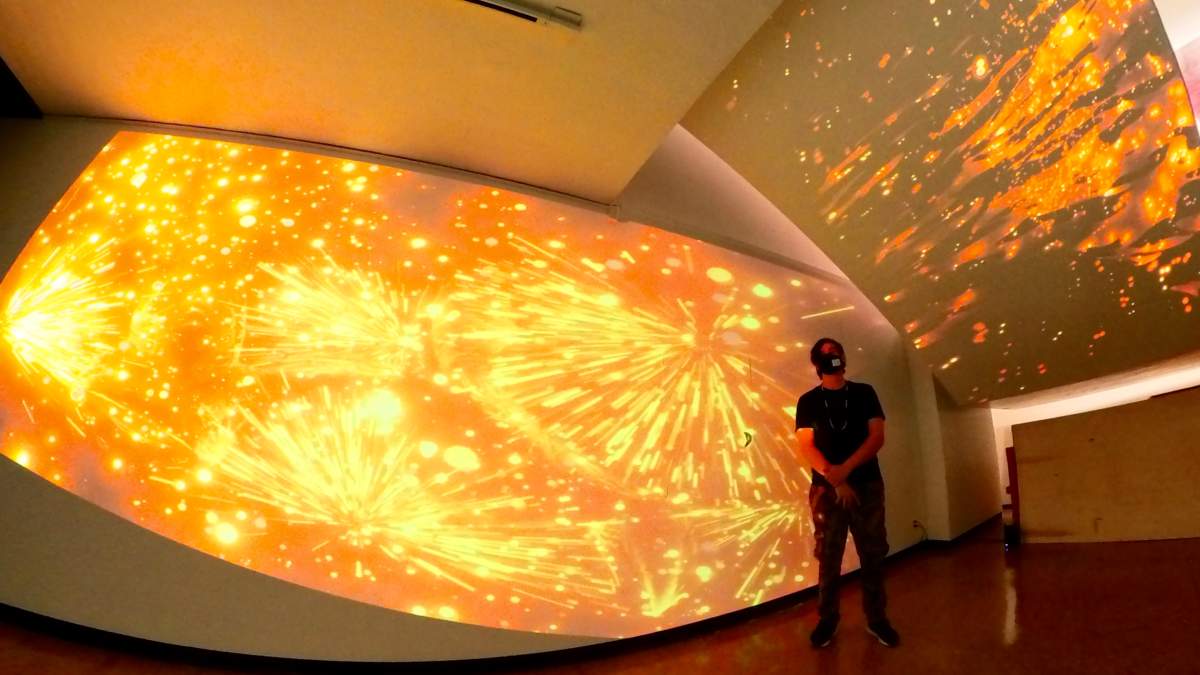Making the unrealistic a reality – that’s what Dene interdisciplinary artist Casey Koyczan does in his work.

The artist from Yellowknife, N.W.T., uses numerous mediums in his work, primarily shifting to digital production since the pandemic began.
“One of these bodies of work I’m creating is these surreal 3D animated walk cycles that are inspired by Indigenous arts and crafts materials – such as beading, porcupine quills, moose and caribou hair tufting and antlers – and sort of reimagining them as spirits of creatures within a digital environment,” Koyczan told Global News.
Koyczan, a University of Manitoba Fine Arts masters graduate, created a virtual tour of the Winnipeg Art Gallery’s Qaumajuq exhibit of Inuit art.
He says the gallery is at the forefront of preserving Inuit, First Nations and Metis art as well as highlighting Indigenous artists of today – something he says is crucial for inspiring artists of today and the future.
“As Indigenous artists, it’s essential that in order to know who we are and where we’re going that we know where we come from,” Koyczan said.

Get breaking National news
“The preservation of our culture, whether it be artworks or tradition or even beliefs, is really important to hold onto. I’m an artist that dabbles so much in futurism and surrealism with an Indigenous angle by way of where I come from. But that is rooted in a place of respect and history and where I come from and where my people come from.”
“I wouldn’t be able to imagine our culture and our people in the future if there wasn’t any sort of root in the past.”
That’s something Marie-Anne Redhead is striving to do as the assistant curator of Indigenous art for the WAG.
“There’s always way more work to be done, I think that we are making important steps as well,” Redhead told Global News.
“We recently deaccessioned and sold the Warhol (art) to make more room for First Nations art. We have a lot of Inuit art, but not a lot of First Nations art, so that should be prioritized because we are on Treaty One land.”
- Hundreds of public sector workers warned their jobs could be cut: union
- Health Canada recalls glucose monitors that may give ‘incorrect’ readings
- ‘Patients get relief’: Researchers recommending nerve blockers to treat migraines
- Colleen Jones remembered: Funeral, celebration of life honours famed curler, broadcaster
The Truth and Reconciliation Commission’s 83rd call to action called upon the Canada Council for the Arts to establish and fund a strategy for Indigenous and non-Indigenous artists to undertake projects and produce work that contributes to the process of reconciliation. In 2015, the council established the {Re}conciliation Initiative, which aimed to promote artistic collaborations between Indigenous and non-Indigenous artists.
Redhead says there is still more work to be done, and she hopes that people reflect on and remember Indigenous history, cultures and stories that can be told and preserved through art.
“We want people to honour the long traditions that have made it here, and not just a superficial display of Indigenous culture, but just a deep understanding and appreciation and wanting to be in good relation with us a to look forward to a future where we are in good relation,” Redhead said.
“I also want people to reflect on the land they’re on, know the territories where you live, and know the stories of the people who are still here.”
















Comments